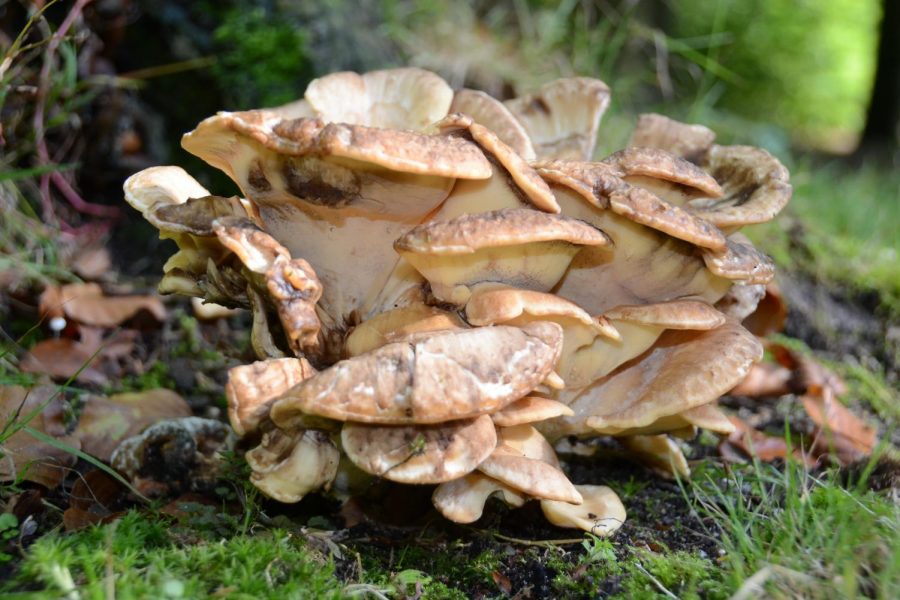Researchers use fungi to expand bee lifespan
Parasites live on backs of bees, attributes to colony collapse, disorder
Two WSU researchers are focused on polypore mushrooms because of the antimicrobial compounds they excrete.
March 29, 2019
Two WSU researchers are using certain fungi extracts to improve bee health.
Jennifer Han, a postdoctoral research associate in the Department of Plant Pathology, and Nick Naeger, a postdoctoral researcher from the Department of Entomology, focused on polypore — multiple pore — mushrooms because of the antimicrobial compounds they excrete.
“The biggest issue that is attributed to the colony collapse disorder is the influx of the Varroa mite spreading deadly viruses to honeybees,” Han said.
The Varroa mite lives on the backs of bees, she said. The mite rips into the bees’ skin and begins feeding on their insides.
“Honeybee viruses have become very common over the last decade,” Naeger said. “There’s a parasitic mite that helps spread viruses, and we are also living in a time of globalization where viruses are getting spread worldwide.”
He said they found that polypore mushrooms reduce the viral levels in bees.
Han said the experiments they conduct include checking in on bees that had fungal extract in their sugar water. Over time, they found that the extract helped extend the lifespan of bees.
“We think that these extracts are replacing or supplementing the nectar, which helps them boost their immune system, and helps them fight off a variety of health problems,” Naeger said.
Their goal is to make this extract affordable, Han said, so beekeepers have a viable and more organic option to killing Varroa mites.
“In the past, beekeepers have used traditional pesticides, but unsurprisingly, these Varroa mites are now becoming resistant to these pesticides,” Han said.
She said the fungus would help local beekeepers who are unwilling to apply chemicals to their bees or do nothing to treat them.
“We had to perform experiments at night [and] in the rain by headlamp,” Naeger said. “Bees in the rain at night are not happy, which means that we got stung a lot, but it didn’t matter because we needed to get the research done.”





















